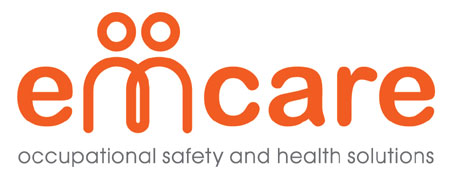Scotland’s Mental Health First Aid (SMHFA) is a nationally certified 12‑hour course, usually delivered over two days by qualified instructors and overseen by Public Health Scotland. This program equips participants to recognise and support individuals experiencing mental health distress, making it a key part of Scotland’s mental health strategy. If you want to understand who benefits most from SMHFA and how it aligns with NHS Scotland priorities, read on.
Brief Overview of Scotland’s Mental Health First Aid (SMHFA)
SMHFA addresses mental health problems directly, teaching people to spot early signs, such as anxiety and depression, and offer initial comfort and advice. Delivered over 12 hours, typically split across two days, or four half‑day or six shorter sessions, the course covers crisis response, listening skills, suicide intervention, and how to guide someone to professional support.
In Scotland’s context, SMHFA is supported by Public Health Scotland, emphasises stigma reduction, and is delivered through certified trainers to maintain quality and cultural relevance. The course manual and approach reflect Scotland’s mental health landscape and recovery‑focused messaging.
Origins of SMHFA: Scotland’s Unique Adaptation
SMHFA is based on the international Mental Health First Aid framework but tailored for Scotland. The curriculum reflects Scottish mental health policy, NHS Scotland priorities, and includes modules on alcohol and drug impact, local recovery networks, and community support systems. Trainers often include lived‑experience facilitators, which adds authenticity and supports stigma reduction within diverse Scottish communities.
Integration with Scottish Government Strategies and NHS Scotland Priorities
SMHFA is woven into Scotland’s broader mental health strategy. It aligns with Public Health Scotland’s goals to increase mental health awareness, reduce stigma, and support early intervention. By equipping community members, schools, workplaces, and volunteer sectors, SMHFA acts as a grassroots extension of NHS initiatives.. Public Health Scotland funds course materials and ensures quality by vetting trainers through its network.
Cultural Sensitivity, Stigma, and Community‑Specific Approaches
One distinctive feature of Scottish Mental Health First Aid is its focus on cultural sensitivity and language use. It addresses discrimination, stigma, and attitudes that influence how mental health is viewed across communities. Scenarios and discussions are adapted to reflect Scotland’s workplace, youth, and third-sector environments. Trainers also emphasise recovery‑oriented communication and the ability to offer peer‑level support until professional help is available.
Course Content: Evidence‑Based Structure and ALGEE Action Plan
SMHFA uses the internationally recognised ALGEE framework: Assess risk, Listen non‑judgmentally, Give reassurance, Encourage professional help, and Encourage self‑help strategies. This structured approach is embedded in all scenarios, role‑plays, and recovery messaging. The course emphasises recognising common mental health challenges including depression, anxiety, psychosis, self‑harm, and substance misuse, and how to offer first aid until professional help is accessed.
Who Should Take SMHFA and Why It Matters
- Workplaces in Scotland: Managers, HR, frontline staff, and community teams benefit from improved awareness and reduced absenteeism. At least one in six workers face mental health problems, costing millions in the UK annually.
- Volunteers and third‑sector staff: Those supporting vulnerable groups can confidently offer initial assistance.
- Local community and education settings: Teachers, youth workers, and student supporters can foster a stigma‑free culture.
- Friends and family: Anyone who wants to recognise signs and offer initial support.
Who Should Take an SMHFA Course in Scotland
Scotland’s communities face rising health issues, including mental health pressures, making it essential to build resilience across sectors. The nationally recognised Scotland’s Mental Health First Aid (SMHFA) course equips individuals with actionable skills in suicide intervention and general support. Here’s who benefits most:
Open to Anyone , No Prior Qualifications Required
- Managers and Supervisors: Gain the confidence to spot early signs of mental health issues in staff and support them effectively.
- Front-Line Staff & Volunteers: Whether in retail, hospitality, transport, or youth outreach, you’ll learn to respond with compassion and clarity.
- Community Workers & Education Staff: Ideal for those working with young people or vulnerable groups, including the Young Person SMHFA variant.
- Healthcare Supporters: Including pharmacy, social care, emergency responders who may encounter crises. This course helps build necessary empathy and basic mental first aid competence.
Organisations Prioritised by Public Health Scotland
Public Health Scotland recommends SMHFA training for sectors such as:
- Health & social care bodies, emergency responders, community and third sector agencies
- Education (schools, colleges), youth services, transport, hospitality, retail, debt counselling and homelessness volunteers
These settings often encounter people experiencing distress, so having trained SMHFA responders strengthens community safety and prevention.
Special Focus: Supporting Young People
For individuals working with children, teens, or youth communities, the Young Person SMHFA variant offers tailored modules. It addresses early intervention around scotland’s mental health, recognising that youth environments can present specific vulnerabilities. You will learn appropriate ways to approach, listen to, and support younger individuals, lowering stigma and promoting compassionate responses.
Why Attend: Core Benefits of SMHFA Training
The course equips anyone, regardless of background, with understanding and skills to combat stigma around oral health is unrelated, but similarly SMHFA addresses stigma around mental health issues. You will learn to recognise common conditions like anxiety, depression, psychosis, and recovery pathways. Importantly, you gain practical suicide intervention strategies that are basic but potentially life‑saving until professional help is available.
SMHFA is:
- Just 12 hours in total, offered over two days or shorter sessions.
- Interactive and engaging with real case studies, group discussions and practical exercises.
- Nationally accredited by Public Health Scotland ensuring consistent quality and recognition.
Why Taking SMHFA in Scotland Matters
Mental health is no longer a topic that can be ignored. In communities, workplaces, schools, and homes across Scotland, more people are recognising the importance of early intervention and supportive conversations. This is where the Scottish Mental Health First Aid (SMHFA) course comes in , a vital health training programme designed to equip individuals with the knowledge and tools to address mental health challenges head-on. Whether you’re a professional, a student, or simply someone who wants to help others, taking the SMHFA course is a step towards making a real difference.
Recognising Early Signs of Mental Distress
One of the most valuable aspects of the SMHFA course is its focus on recognising the early warning signs of mental distress. Participants learn how to identify symptoms of common issues such as depression, anxiety, psychosis, self-harm, and substance misuse. Early recognition can be the difference between someone receiving timely support or continuing to struggle in silence. With SMHFA, you’ll be better prepared to notice when something isn’t right, not just in others, but in yourself too.
Gaining Confidence in Suicide Intervention and Listening Skills
A key part of the training involves learning suicide intervention techniques. These skills are delivered through the ALGEE framework, which stands for: Approach the person, Listen non-judgementally, Give reassurance and information, Encourage professional help, and Encourage self-help strategies. This structured approach helps you remain calm and supportive in difficult situations.
The ability to respond confidently in crisis scenarios is invaluable. Whether it’s a colleague expressing suicidal thoughts or a friend going through a mental health crisis, knowing how to help can truly save lives. The course strengthens your intervention skills, helping you become a trusted and empathetic presence in your community.
Promoting Mental Health Awareness and Reducing Stigma
Beyond immediate interventions, SMHFA also promotes long-term change by addressing the stigma surrounding mental health. The course encourages open conversations and greater awareness, making mental health a normal part of everyday dialogue. As more people receive this training, workplaces and communities across Scotland become safer, more inclusive spaces.
By supporting recovery and wellbeing, SMHFA-trained individuals help create an environment where people feel seen, heard, and supported. This is especially important in professional settings, where stress and burnout are increasingly common. With mental health awareness embedded in the workplace, employers can improve morale, reduce absenteeism, and build a stronger, healthier team culture.
Empower Yourself With Suicide Intervention Skills
Completing the SMHFA course is more than just gaining suicide intervention skills; it’s about becoming an active contributor to a mentally healthy Scotland. Whether you’re responding to someone in crisis or simply offering a listening ear, your presence matters. These are not just skills for emergencies, but tools for everyday life.
Scotland needs more people who are equipped and empowered to act. Taking the SMHFA course ensures you are prepared to support others, challenge stigma, and promote recovery. Mental health is everyone’s responsibility, and with the right training, each of us can make a difference.
SMHFA Course Format, Delivery & Quality Assurance
If you’re looking to strengthen mental wellbeing in your community or organisation, the SMHFA (Scotland’s Mental Health First Aid) course offers a powerful tool. Delivered under the oversight of Health Scotland (operated by Public Health Scotland), it combines high‑quality standards with flexibility in format and delivery.
Accredited 12‑hour training options
The SMHFA course is a nationally recognised 12‑hour accredited training programme. It is offered in three flexible formats to accommodate different schedules and learning preferences:
- Two full days of intensive classroom learning.
- Four half‑day sessions, ideal for those with part‑time availability.
- Six two‑hour sessions, perfect for gradual learning across several weeks.
Qualified instructors and quality assurance
Training is delivered only by qualified SMHFA instructors, each certified to deliver the standard course. The integrity and quality are continuously monitored by Public Health Scotland, sometimes still referred to under its former branding as NHS Health Scotland. This ensures consistency across providers and locations.
Interactive and engaging delivery methods (h3–h5)
Group discussions and case studies
SMHFA is not a passive lecture. Lectures are broken up with group discussions and realistic case studies to deepen understanding.
Videos and role‑play exercises
Participants view short, real‑life videos illustrating mental health scenarios and practise responses through role‑play, which builds confidence in real situations.
Lived‑experience trainers
Some sessions include trainers who draw on their own experiences of mental ill health and recovery, adding authenticity and empathy to the learning process.
Certificates and take‑away materials
Upon successful completion, each delegate receives a nationally recognised certificate and a comprehensive manual. These resources are essential for refreshing knowledge, reinforcing skills, and being able to signpost others effectively in the future.


